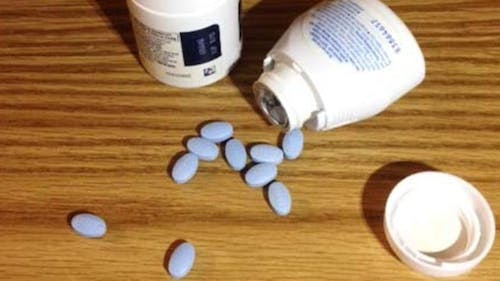New Jersey congressman passes act to curb heroin, opioid, prescription drug abuse

Connor was once a student at Rutgers, then he was homeless for a spell after falling prey to an all-consuming heroin addiction.
Justin Wolfe, too, was a student, pursuing his bachelor’s degree at Temple University, until he overdosed in his parents’ home with four bags of heroin packed in the pockets of his jeans.
Connor, whose last name was retracted for privacy, struggled with a heroin addiction in 2014, according to a previous article in The Daily Targum. And Wolfe, who was the 21-year-old son of a family who resides in Voorhees, New Jersey, died from his addiction in 2012, according to justinforjustice.org, a website created in his memory.
In the years since Connor and Justin’s deaths, heroin use only spiked.
There could be a sign reading “Welcome to Herointown” if all of the heroin addicts in New Jersey were sent to live in one place, according to nj.com in December 2015.
The town’s population would be around 128,000 people — considerably larger than New Brunswick’s population, which hangs around the 60,000 mark, according to the most recent census data from 2014. “Herointown” would be considered the fourth-largest city in the state.
In response to the drug epidemic in New Jersey that not only covers heroin but also opioid and prescription drug abuse, Democratic Rep. Frank Pallone Jr. of the Sixth Congressional District announced possible legislation in late January that would provide $500 million annually to fund treatment programs for New Jersey residents suffering from substance addictions.
“This epidemic affects families from all walks of life and unfortunately, has become personal for too many New Jersey families that have been impacted by addiction or lost loved ones to an overdose,” Pallone said at a press conference held at the Damon House, a rehabilitation center located in New Brunswick.
The legislation, which is formally titled the Heroin and Prescription Drug Abuse Prevention and Reduction Act, has four prongs — substance abuse prevention, response, access and life-long recovery, according to Pallone’s press release.
The act would require a variety of medical professionals — physicians, first responders and pharmacists — to better recognize and treat addiction and overdose. Naloxone, or narcan, a nasal spray drug that helps reverse the effects of an opioid overdose, would also be made more affordable.
The act would also offer medication-assisted treatment using buprenorphine, a federally regulated treatment with a history of treating opioid abuse disorders and syringe exchange programs.
With $15 million in grant money to fund the syringe-exchange programs, people addicted to heroin would be allowed to trade in dirty needles in exchange for sterile needles, lowering the chance for HIV/AIDS and Hepatitis C transmission.
Lisa Laitman, director of the Alcohol and Drug Assistance Program (ADAP) at Rutgers, said she commended Pallone’s efforts to curb substance abuse in New Jersey, according to the press release.
“His particular focus in New Jersey on providing adolescents and young adult access to evidenced-based treatment and recovery support is much needed in light of the toll this epidemic has taken on our young people in New Jersey,” she said.
Forty percent of opiate admissions for treatment involved persons aged 25 or younger, according to a 2014 report from the Governor’s Council on Alcoholism and Drug Abuse,
Connor knew the ins and outs of drug treatment.
He was admitted to treatment centers but he felt “out of control,” he said, according to the previous article in The Daily Targum. He declined help until he felt he had no choice.
“(A heroin high) was pretty much the exact same feeling I was getting from painkillers, but for a much cheaper price. I told myself I wasn’t going to do it very often … but the fact that it was so much cheaper — it wasn’t long before that was all I was doing,” he said.
Connor’s battle with his heroin addiction was fierce. And Jake Novak, a School of Arts and Sciences first-year, knows the drug epidemic in New Jersey is on the rise, so he commended Pallone on the act.
“I don’t know all the ins and outs, but I do think this is a good idea,” he said.
Roland Lucas, another School of Arts and Sciences first-year student, agreed with Novak.
“Help those who can’t help themselves,” he said.
___
Katie Park is a School of Communication and Information senior majoring in journalism and media studies. She is a former news editor of The Daily Targum. She can be found on Twitter @kasopar.



